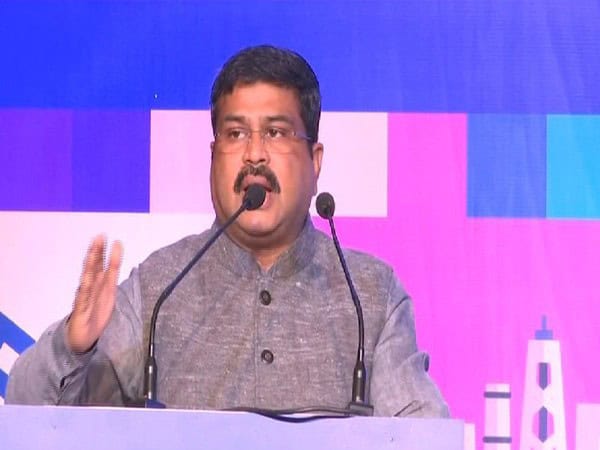New Delhi: Union Petroleum and Natural Gas Minister Dharmendra Pradhan on Tuesday said energy is the weapon of socio economic transformation.
He made this comment while addressing ‘Changing Indian Landscape Adaptive to New Normal and Reality’ Programme here.
“Energy is the big enabler of development. Energy is the weapon of socio-economic transformation. So, it is our aim that if we supply energy to 125 crore people in the coming three-four years then the energy will remain secure, sustainable,” Pradhan said.
The Union Minister also said that the per capita energy consumption in India is lowest in the world, which needs to be increased.
“Today, India’s per capita consumption of energy is lowest in the world. It is going to increase rapidly in the coming years. India now consumes only six percent of the world’s primary energy. This will go up to 25 percent in the next 15-20 years,” Pradhan asserted.
Energy in India is multi-dimensional as there are many ministries: Ministry of Power, Ministry of Coal, Ministry of Renewable Energy, Ministry of Nuclear Science, and Ministry of Petroleum and Natural Gas.
He advised the conference that its approach should be to find out what is real road-map to for India in the next two-three decades.
Today India’s per capita consumption of petroleum is 10 kg, whereas the world’s average is 30 kg. Therefore petrochemical can become a very big catalyst, the Minister said.
Talking about Prime Minister Narendara Modi’s vision, Pradhan said, “By December 2018 around 18000 villages will be electrified. In September, we released a survey that out of 25 crore households, four crore households don’t have electricity. The Modi government has launched Pradhan Mantri Saubhagya Yojna with a fund of Rs 16000 crore to fill this gap by the end of 2018. ”
The scheme was launched by Prime Minister Modi on September 25.
The objective of the ‘Saubhagya’ is to provide energy access to all by last mile connectivity and electricity connections to all remaining un-electrified households in rural as well as urban areas to achieve universal household electrification in the country. (ANI)

